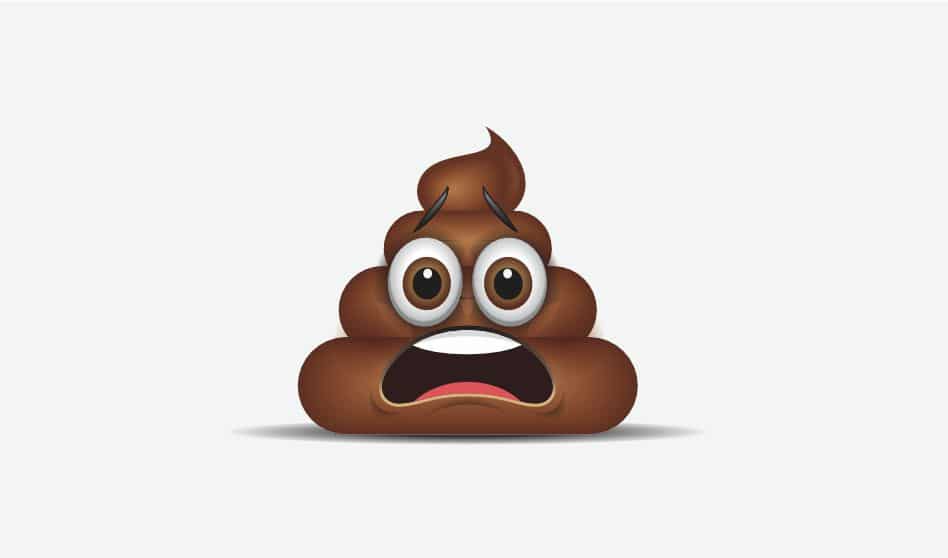
Do You Feel Like Crap? (Functional Bowel Disease)
How many important life events have you had compromised or just ruined by digestive problems? Because you just hurt too much, you felt too bad or couldn’t stray far from a restroom. These problems are termed “Functional Bowel Disease” or “FBD” in conventional medicine.
What about the mental effects caused by indigestion, constipation, diarrhea, bloating, cramping, and the combination of all of these, known as “Irritable Bowel Syndrome” (IBS)? These all cause mental and physical lethargy… so you just don’t feel up for much of anything.
Now I have something staggering to tell you, especially if you’re a woman:
In the US, over 66 MILLION people—one in five—suffer from these problems… and 70% of them are women. That means that 35% of women in the US have these problems. 66 million is greater than the entire population of the United Kingdom. That’s a lot of people.[i]
With a problem this common, it’s not surprising that people frequently seek help from their doctors. Medically, these symptoms are known as Functional Bowel Disease because no physical cause can be found for them. Every year, over $8 BILLION is spent on medical costs for these problems, and FBD is one of the top 10 reasons people see their primary care doctors. Also, patients diagnosed with FBD spend on average 74% more in direct healthcare costs than other people.
But…
There’s no known cause for these problems. Treatment is limited to mostly time-proven remedies to reduce symptoms, which work on a hit-or-miss basis (this is something you’ll agree with wholeheartedly if you suffer from Functional Bowel Disease).
I wasn’t aware of much of this information until I started researching for this blog. In my practice, I see mostly severe patients; people don’t come to me just for Functional Bowel Disease symptoms. However, most of my patients have these symptoms in addition to all their other more severe problems. We handle diarrhea, constipation, abdominal cramping, bloating, reflux, heartburn, stomach upset, nausea, etc. at the beginning of most patient treatment programs. These symptoms are usually gone or mostly handled in a few weeks, no big deal, so I was taken aback by the statistics I’m quoting here.
I’m just amazed that the public is spending 8 billion annually on what are honestly simple, easy-to-handle basic issues. I commented to my office manager that if the 66 million sufferers of Functional Bowel Disease were all given one specific whole-food supplement we use frequently, it would probably solve the symptoms of about half of them.
Symptom Relief is Temporary: How to Solve the Actual Problem?
Most Functional Bowel Disease symptoms can be quickly relieved with basic food supplementation and some diet changes. But these symptoms are just evidence of underlying health problems. With my patients, it’s very common that severe problems began with simple digestive issues:
- “At first, I just took Tums every time I had heartburn.
- “Then, after a couple of years I had to prop up my bed, because I couldn’t sleep lying down flat anymore.
- “Then I had to stop eating after about 6 o’clock.
- “Then I was diagnosed with GERD and ulcers of the esophagus.
- “Then I was put on a PPI drug (PPI is Proton Pump Inhibitor, a drug that reduces stomach acid).
- “Two years later, I started having heart problems, which I’ve found may be related to my body not absorbing minerals because of the PPI drug. This might also be a reason my memory and concentration has become so poor.”
The underlying cause of digestive symptoms can be sex hormone problems (remember that Functional Bowel Disease symptoms mainly occur in women?), allergies, mental stress, thyroid problems, adrenal problems, liver problems… many, many possibilities. This is why conventional medicine only treats the symptoms: it has no training or tools to discover the underlying causes and no effective treatment techniques to apply if it did know a cause.
In almost all cases, a drug can’t cure Functional Bowel Disease problems. These problems are termed “chronic conditions” that can only be managed with (often) lifelong drugs but never cured.
So, I find myself in an odd position of knowing what to do to solve the horrific digestive problems of 66 million people… most of whom think their problems can’t be solved and just keep taking drugs to try and take the edge off.
It’s a strange situation.
[i] All statistics are from the Centers for Disease Control website.



